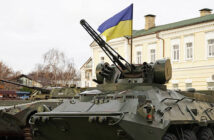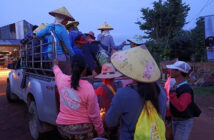Dear Readers,
Timing is everything and crisis is always a turning point. Right on cue with the Australian Government’s review of national cyber and terror laws, the Australian Federal Police (AFP) and Australian Security Intelligence Organisation (ASIO) make arrests and conduct searches in relation to terrorism planning offences. It follows ASIO Director General confirming over 200 active counter terrorism investigations underway.
Then to underline to the Australian public just how temperamental religious extremism can be, hostile religious groups clash in ugly scenes in Sydney, with reports of coordinated pre-planned events but publicly reported as in condemnation of a Youtube posted American made film. It must be noted also the circumstances of the film’s production, alleged to have been fraudulently made to insanely offend Islam. No one could write a more fascinating yet shocking script with many people killed around the world within days, as a direct result of related protest against the film.
Coinciding with these events, in the international theatre, was the attack on the US embassy in Benghazi and murder of US Ambassador J. Christopher Stevens and subsequent US embassy attacks and protests around the world.
It was sad to see world media taken by extremism grabbing headlines whilst little mention is made of other events in the Muslim world. More than 300 labourers were burned alive in two separate incidents when factories caught fire in Karachi, the capital of Sindh and Lahore, the capital of Punjab. In Karachi alone 280 workers were trapped in the fire and in Punjab 25 were killed in similar conditions. These incidents happened on September 11 and will go down in history as Pakistan’s 9/11 for the downtrodden working class people (Source: Asian Human Rights Commission).
Currently, I have concern that a perfect storm is forming – in that defence, security agencies and law enforcement agencies have had big budget cuts, with more to come, along with a coinciding increase in the range of threats (cyber, organised, political) and likewise in the sophistication and significance of the threat consequences. For some time there has been a need to engage with the private security sector and breakdown the limitations caused by bureaucracy in federal and state agencies – and not just in defence and law enforcement, but also in our community based agencies – I am amazed and shocked at just how uncoordinated and unaccountable many government agencies have become.
For example, in Australia, and specifically regional Western Australia – many Australians would need to sit down to find out how bad it is and it’s not much different in the intelligence and crime fighting communities – just look at the size and number of departments in the Federal Attorney General’s – do you think there’s enough time in the day for them to maintain good open communications – let alone with the myriad of state based agencies and international trends – they have my support and respect, they do their utmost, they do whatever they can – but it will never be enough – in many cases they touch just the tip of the iceberg. And that goes the same whether it is a security or community government organisation. The key element remains unchanged and simple, the human being needs to be carefully made aware of risk, trained and prepared for any event, and motivated and rewarded for ethical and proper conduct.
In what is apparent as the Asian Cyber Century, world, regional and national events and trends are now moving fast and constantly. With this comes a need for a renewed and more risk mature mindset.
There are rumblings of war around the world and as a result of globalisation, the world changes too fast and crises occur too often for government to react with any measured efficacy. Yet they continue to operate in a purely reactive mode – be it a super trawler in Australian waters or calls to bandaid approaches to fighting organised crime, counter terrorism and public security (i.e. recent TI & CT Act reviews, border controls, and emergency management) – but there’s still many more issues that need urgent attention and on first glance appear overwhelming.
Enterprises in the Asia Pacific face some interesting risks on the horizon, any of which has the capacity to cause considerable business and social disruption. A sustained war in the region or our Middle Eastern neighbours, a major cyber event affecting critical infrastructure, catastrophic terror or suicide attacks in major cities, health endemics (lack of water, hunger, obesity, disease, aging, drugs) and civil or workforce unrest in times of austerity.
Yet, there is a sense of complacency in the mainstream and the only areas we seem to be planning for in the future is the internet and education – both noble but useless causes if we don’t have an equally resilient population who feel secure, as well as able to be kept safe and secure. Human Security and Preparedness should be a major policy push for federal and state governments and included with care into the new education revolution.
Doing so requires engagement with the private sector to provide training, review and reporting back to government for clearly defined outcomes. Fantastic progress is being made, but in pockets. A great deal of coordination and integration is still required to ensure the myriad of government departments, layers of control (Int’l, Federal, State, Local), silos of influence (Industry, Corporate, NFPs, NGOs, Sectors, Professions), agenda driven politics (Left/Right/Greens/Groups/Extremist) and human inadequacies (racism, discrimination, violence, abuse) are somehow overcome. It’s a big task and not likely to be dealt with head on until it’s both urgent and important – much like security is often handled.
Once we come to understand and acknowledge that the unexpected but anticipated events will always happen and now, in a modern world, on a scale that can profoundly affect us as a society, country and region, then we need to start preparing ourselves for what is fundamental, even before we can start to educate and enjoy a productive life, it is our security.
In this issue of our e-magazine we examine India’s national security, Syria’s chemical and biological weapons, the media’s involvement in terrorism and the Aurora massacre thanks to Clive Williams. We also hear from Southern Cross Protection’s Patrick Bourke, Unysis’ John Kendall and AT&T’s Chief Security Officer Ed Amoroso.
Stay tuned with us as we continue to explore, educate, entertain and most importantly, engage. I look forward to hearing from you and encourage to connect with us and retain My Security Media as your personal professional library, willing to listen and accessible anytime, anywhere.
Yours sincerely,
Chris Cubbage
APSM Executive Editor
For the Emag can we stick these two on one or half a page?
NEW BOOK & DOCUMENTARY: SECURITY IS FUNDAMENTAL TO US ALL
My co-authored book Corporate Security in the Asia Pacific Region: Crisis, Crime, Fraud & Misconduct is the culmination of five (5) years work of writing projects, eloquently pulled together and polished by Dr. David Brooks, a renowned security expert, colleague and former senior academic at Edith Cowan University. This book examines security related issues, including regional geo-political activity and influence of the myriad of external and internal risks faced by modern corporate operations and security departments, with case studies and country reviews.
In addition, the self-made documentary, 11YRS AFTER 911, was filmed during travels across the USA in April 2012. The video is a montage of interviews with experts in law enforcement, counter terrorism and security management. The video examines the role security plays in modern society and how it has come to be professionalised, in particular in the post 911 era. Hope you take the time to subscribe to My Security TV.






